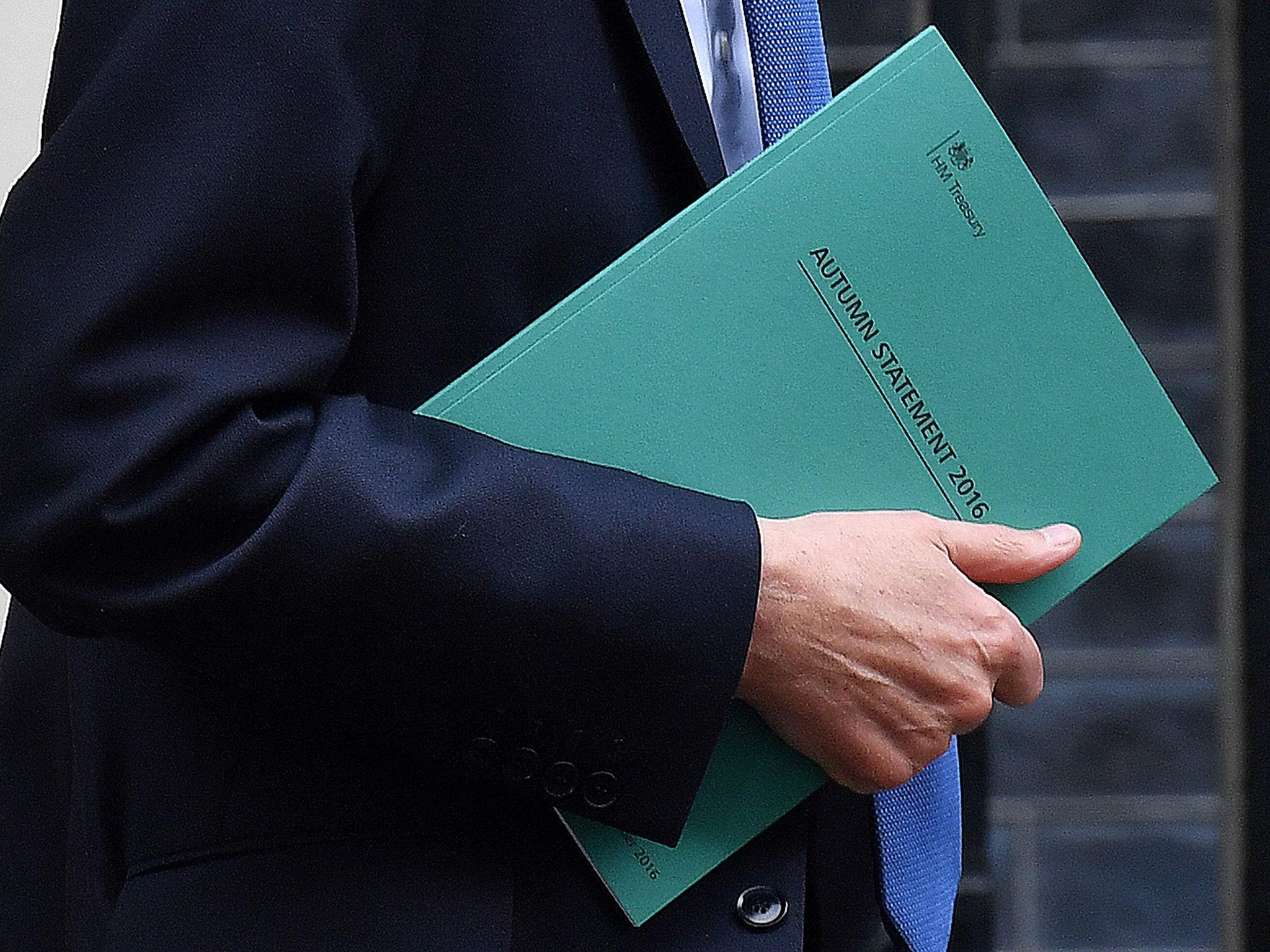National Living Wage increase should be reconsidered because Brexit has made UK economy too weak, OECD says
The minimum wage for over 25s is set to rise by 4 per cent from next year, following an announcement by Chancellor Philip Hammond in his first Autumn Statement

Your support helps us to tell the story
From reproductive rights to climate change to Big Tech, The Independent is on the ground when the story is developing. Whether it's investigating the financials of Elon Musk's pro-Trump PAC or producing our latest documentary, 'The A Word', which shines a light on the American women fighting for reproductive rights, we know how important it is to parse out the facts from the messaging.
At such a critical moment in US history, we need reporters on the ground. Your donation allows us to keep sending journalists to speak to both sides of the story.
The Independent is trusted by Americans across the entire political spectrum. And unlike many other quality news outlets, we choose not to lock Americans out of our reporting and analysis with paywalls. We believe quality journalism should be available to everyone, paid for by those who can afford it.
Your support makes all the difference.The UK should be “prudent” with its plans to raise the National Living Wage next year with growth expect to slow in the wake of the UK vote to leave the EU, according to the Organisation for Economic Co-operation and Development (OECD).
The minimum wage for over-25s is set to rise by 4 per cent from next year, following an announcement by Chancellor Philip Hammond in his first Autumn Statement.
Mr Hammond will give a boost to the National Living wage, launched under his predecessor George Osborne, in a bid to get to the Government’s 2020 target of £9 an hour.
However, the OECD said further raises in the minimum wage should be considered “prudently” given the UK’s weak economic outlook.
The OECD says the UK will grow at 2 per cent this year and 1.2 per cent in 2017 – both figures are 0.2 percentage points higher from its latest forecast.
However, the projection still represents a sharp slowdown driven by an inflation-induced pinch on consumer spending and lower investment.
The UK will underperform the rest of the world, for which the forecast is unchanged at 2.9 per cent this year and 3.6 per cent in 2018.
“The unpredictability of the exit process from the European Union is a major downside risk,” the OECD said on Monday.
“Uncertainty could hamper domestic and foreign investment more than projected and the pass-through of currency depreciation to prices could be larger, deepening the extent of stagflation.”
The OECD said the UK’s labour market had been “resilient”, although job creation had moderated recently.
“Real wages have been growing at a time of low inflation, but the fall of the exchange rate has started to increase price pressures,” it said.
“Caution is needed with the implementation of the policy to raise the National Living Wage to 60 per cent of median hourly earnings by 2020.
“The effects on employment need to be carefully assessed before any further increases are adopted, especially as growth slows and labour markets weaken.”
Last week, the respected Institute for Fiscal Studies (IFS) also warned that working families will be hit hardest by the unprecedented slump, with pensioners better protected.
Workers will suffer because of an expected 3.7 per cent fall in real earnings by the start of the next decade, compared with the pre-referendum forecast.
IFS economist Andrew Hood said: “The OBR’s figures are for real GDP per household to be £1,250 lower in 2020-21, as a result of the vote to leave the EU.”
And he added: “Everyone will feel some of the pain, but I expect working-age households will feel more pain than pensioner households over the next few years.”
Join our commenting forum
Join thought-provoking conversations, follow other Independent readers and see their replies
Comments